UNSW boasts its record number of Fulbright Scholars in 2021
Nine UNSW academics, PhD candidates and alumni will travel to esteemed US research institutions and organisations under the flagship foreign exchange program.
An exceptional number of UNSW Sydney academics, PhD students and alumni have been announced as Fulbright Scholars to study or research in the US in 2021.
This year, nine scholars from UNSW will be a part of the flagship foreign exchange scholarship program, aimed at increasing binational research collaboration and the exchange of ideas.
All UNSW scholars received Fulbright Future Scholarships, fully funded opportunities for study and research programs for projects that seek to have a positive impact on the health, livelihoods and prosperity of Australians.
Dr Clare Stephens is a postdoctoral researcher at the UNSW Water Research Centre. Her work focuses on the implications of climate change for water resources.
Dr Stephens will use her Fulbright Scholarship to visit a leading ecohydrology group at the University of Virginia and apply detailed modelling tools to simulate the Australian environment under change.
“I’m excited to work with ecohydrologic modelling experts at the University of Virginia to better understand the complex interactions between vegetation, climate, water and fire, and how they might evolve in the future,” Dr Stephens said.
“This collaboration will help us build knowledge specific to Australian landscapes at the spatial scales relevant to water management, helping secure Australia’s water future under climate change.”
Professor Diane Fatkin graduated from UNSW in 1997 with a Doctor of Medicine. She is a Conjoint Professor at St Vincent’s Clinical School, UNSW Medicine & Health, and Honorary Medical Officer in the Cardiology Department at St Vincent’s Hospital.
Prof. Fatkin will use the Fulbright Scholarship to undertake a sabbatical study visit to the Seidman Laboratory at Harvard Medical School in Boston. She plans to gain experience in cutting-edge techniques for studying heart function, which will provide insights into causes of genetic heart disease.
“I’m looking forward to spending time at Harvard Medical School to further my research on dilated cardiomyopathy, a condition where the heart becomes enlarged and can’t pump blood effectively,” Prof. Fatkin said.
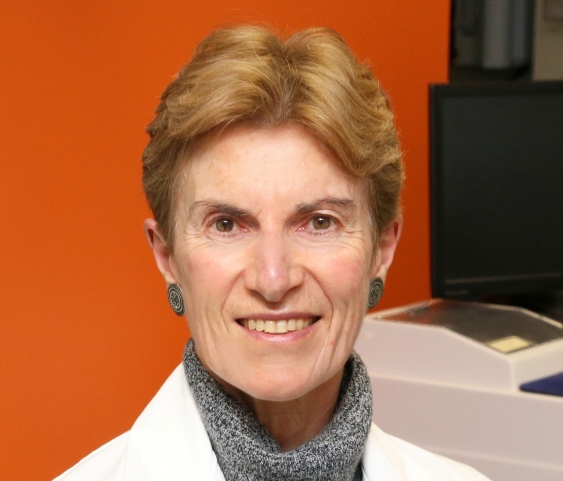
Professor Diane Fatkin. Photo: Fulbright Australia.
Dr Sara Hungerford graduated in medicine from UNSW in 2009 and recently submitted her PhD thesis at UNSW. She is a former professional cricketer and now consultant physician and cardiologist with previous clinical experience in Australia and the United Kingdom. She has an academic focus and teaches medical students at UNSW on a regular basis.
As a Fulbright Scholar, Dr Hungerford hopes to complete a research fellowship at the Icahn School of Medicine at Mount Sinai, exploring invasive cardiac hemodynamics and structural heart disease, specifically in improving the assessment and management of patients with complex valvular heart disease.
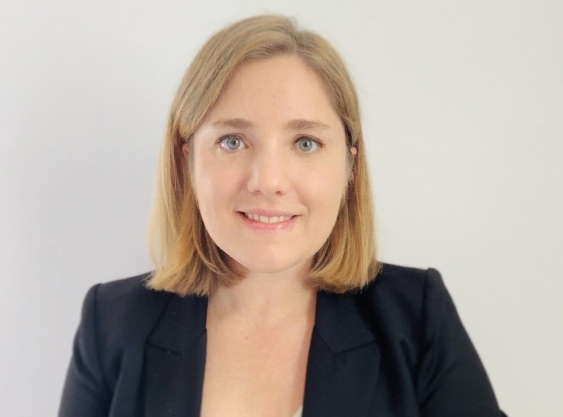
Dr Sara Hungerford. Photo: Fulbright Australia.
Ms Patricia Sullivan is a PhD candidate at the Children’s Cancer Institute and UNSW Medicine & Health. She works with genomic data from patients with rare diseases and paediatric cancers to find the genetic cause behind their disease.
As a Fulbright Scholar, Ms Sullivan will be working at the Broad Institute of MIT and Harvard University to analyse genetic data from their global cohort of rare disease patients. This project aims to deliver a genetic diagnosis for the unsolved families affected by rare disease, providing answers about their disease and potentially enabling personalised treatment.
“Receiving the Fulbright Future Scholarship allows me to undertake a research placement with the Center for Mendelian Genomics at the Broad Institute, a group at the forefront of genomics. It is an exceptional opportunity to learn from global leaders in my research area and to potentially solve some quite complex rare disease cases for families who have been searching for an answer,” Ms Sullivan said.
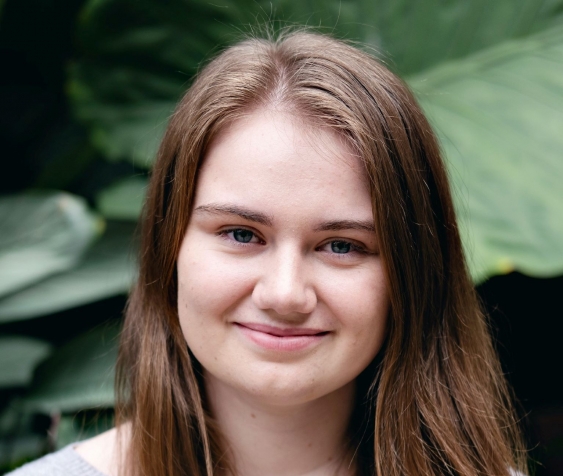
Ms Patricia Sullivan. Photo: Fulbright Australia.
Ms Diana Zhang is a Scientia PhD Scholar at UNSW School of Chemistry. Her research involves developing more sensitive and accurate analytical methodologies and instrumentation for disease diagnosis, with a particular focus on obtaining chemical ‘fingerprints’ produced from volatile chemicals found at the surface of skin.
As a Fulbright Scholar, Ms Zhang will work at Boston University to develop an advanced machine learning method that can diagnose Parkinson’s Disease from a chemical ‘fingerprint’. The outcome of this research could enable early diagnosis and provide hope and prosperity to the Parkinson’s community.
“I’m humbled by the opportunity to be an Australian Ambassador in the US and to conduct research with pre-eminent leaders in computer science. The integration of machine learning and analytical instrumentation could revolutionise medical diagnostics, and I’m excited to kickstart bilateral research collaborations and see forth its potential. I am also grateful to staff and colleagues at UNSW who have helped make this journey possible,” Ms Zhang said.
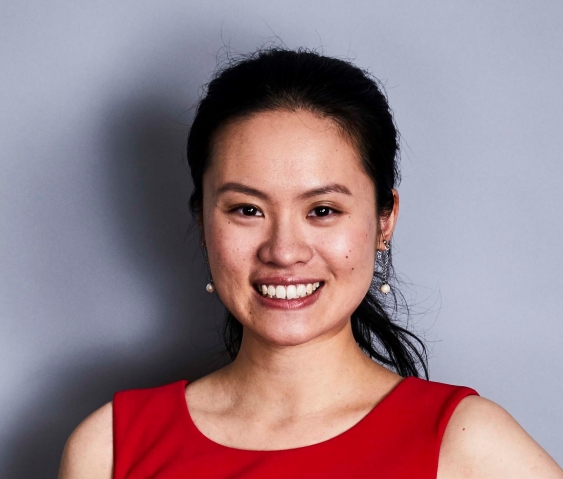
Ms Diana Zhang. Photo: Fulbright Australia.
ALUMNI
Mr Thomas Boak, who graduated from UNSW in 2015 with a Bachelor of International Studies (Hons), is a Policy Officer with the Department of Foreign Affairs and Trade (DFAT), working to deliver Australia’s Indo-Pacific Strategy. He has previously worked at a China think-tank, as an election monitor in Timor-Leste, at an oil and gas company, in remote Indigenous communities and in the Royal Australian Air Force.
While undertaking a Master of Public Administration at Columbia University’s School of International and Public Affairs, Mr Boak will specialise in foreign policy and geo-economics. He aims to develop a model for addressing narrow supply chains for critical minerals, such as rare earth elements.
“It’s an honour to be going to Columbia as a Fulbright Scholar, and I’m excited to take my ideas on supply chains and develop them further in the US. These are critical issues that will have a bearing on the prosperity and security of all Australians. I’m grateful to the Fulbright Commission for seeing merit in my proposal and supporting my studies, and, of course, to UNSW for starting me on my academic journey as an undergrad,” Mr Boak said.
Ms Marcella Hager, who graduated from UNSW in 2019 with a Bachelor of Planning (Hons), is an urban planner who is passionate about the ability for urban planning mechanisms to better the world – environmentally, socially and economically. She is particularly interested in how environmental planning policy can improve the sustainability of urban food systems.
As a Fulbright Scholar, Ms Hager will pursue a Master of Environmental Management at Yale University. On completion of her degree, she hopes to establish a network where professionals engaged in the sustainable food system can collaborate with US and Australian counterparts.
“During my Fulbright experience, I will learn about the complexities inherent to the global food system, and the competing factors that need to be balanced when developing environmental public policy. I hope to one day use this knowledge to help facilitate the transition to a more sustainable food system model that simultaneously nourishes our population and planet,” Ms Hager said.
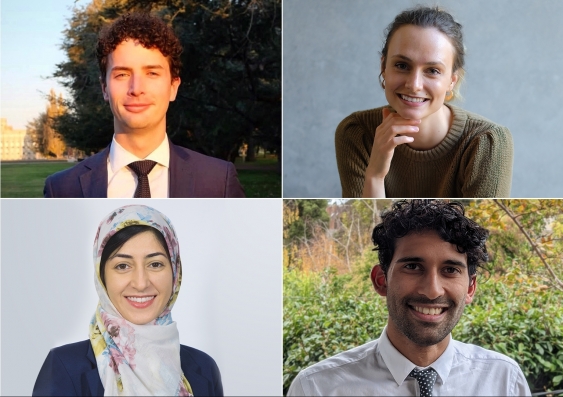
Mr Thomas Boak, Ms Marcella Hager, Dr Fatemeh Salehi and Mr Himmat Panag. Photo: UNSW.
Mr Himmat Panag graduated from UNSW in 2018 with a Bachelor of Engineering (Aerospace) and a Bachelor of Science (Mathematics). Since graduating, Mr Panag has worked as an aerospace engineer, designing flight control systems for various aircraft.
As a Fulbright Scholar, Mr Panag will undertake a Masters in Aerospace Engineering at the University of Illinois, focusing on astrodynamics and control theory. As part of his thesis, he will conduct research with NASA’s Jet Propulsion Laboratory, helping design trajectories and control algorithms for future space missions.
“The Fulbright Scholarship has given me an incredible opportunity to pursue a master’s degree at one of the world’s leading aerospace institutions. I aim to apply my major in control theory to spacecraft mission design and to share this unique experience with fellow researchers on my return to Australia,” Mr Panag said.
Dr Fatemeh Salehi, who graduated from UNSW in 2015 with a PhD (Photovoltaics & Solar Energy), is currently a senior lecturer at the School of Engineering and Co-Director of Sustainable Energy Research Centre (SERC) at Macquarie University. Her research focuses on developing computational models for turbulent flows to advance clean energy technologies.
As a Fulbright Scholar, Dr Salehi will spend four months at the world-class clean energy laboratory at the University of Michigan to create a new cost-effective computer tool for modelling spray flows in combustion devices. This will assist the design of engines with extremely low emissions.
“I am very excited to receive the Fulbright Scholarship which will not only allow me to enhance my collaborations but also provide me with an opportunity to be an ambassador for Australia and learn more about research culture in the US,” Dr Salehi said.
“The aim of my visit is to combine my efforts in droplet modelling with the exciting simulation platform at the University of Michigan. This will provide a highly effective computational spray model that will be beneficial for various applications from clean engine technologies to drug inhalers.”
The Fulbright Program has grown to become the largest educational exchange scholarship program in the world, operating in over 160 countries. In its 70-year history, more than 370,000 students, academics and professionals have received Fulbright Scholarships to study, teach or conduct research and promote bilateral collaboration.

